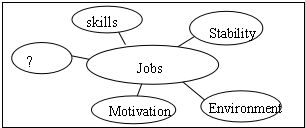题目内容
17.University Room RegulationsApproved and Prohibited Items
The following items are approved for use in residential (住宿的) rooms:electric blankets,hair dryers,personal computers,radios,televisions and DVD players.Items that are not allowed in student rooms include:candles,ceiling fans,fireworks,waterbeds,sun lamps and wireless routers.Please note that any prohibited items will be taken away by the Office of Residence Life.
Access to Residential Rooms
Students are provided with a combination (组合密码) for their room door locks upon check-in.Do not share your room door lock combination with anyone.The Office of Residence Life may change the door lock combination at any time at the expense of the resident if it is found that the student has shared the combination with others.The fee is﹩25to change a room combination.
Cooking Policy
Students living in buildings that have kitchens are only permitted to cook in the kitchen.Students must clean up after cooking.This is not the responsibility of housekeeping staff.Kitchens that are not kept clean may be closed for use.With the exception of using a small microwave oven (微波炉) to heat food,students are not permitted to cook in their rooms.
Pet Policy
No pets except fish are permitted in student rooms.Students who are found with pets,whether visiting or owned by the student,are subject to an initial fine of﹩100and a continuing fine of﹩50a day per pet.Students receive written notice when the fine goes into effect.If,one week from the date of written notice,the pet is not removed,the student is referred to the Student Court.
Quiet Hours
Residential buildings must maintain an atmosphere that supports the academic mission of the University.Minimum quiet hours in all campus residences are 11:00pm to 8:00am Sunday through Thursday.Quiet hours on Friday and Saturday nights are 1:00am to 8:00am.Students who violate quiet hours are subject to a fine of﹩25.
56.Which of the following items are allowed in student rooms?D
A.Ceiling fans and waterbeds.
B.Wireless routers and radios.
C.Hair dryers and candles.
D.TVs and electric blankets.
57.What if a student is found to have told his combination to others?A
A.The combination should be changed.
B.The Office should be charged.
C.He should replace the door lock.
D.He should check out of the room.
58.If a student has kept a cat in his room for a week since the warning,he will faceC.
A.parent visits B.a fine of﹩100
C.the Student Court D.a written notice
59.When can students enjoy a party in residences?D
A.7:00am,Sunday. B.7:30am,Thursday.
C.11:30pm,Monday. D.00:30am,Saturday.
分析 本文介绍了大学住宿制度中的五项规定:
1、允许和禁止的物品:允许使用电热毯、电吹风、个人电脑、收音机、电视和DVD播放器;不允许使用蜡烛、吊扇、烟火、电热充水床垫、日光灯和无线路由器,如果携带会被没收.
2、宿舍的密码锁:密码要保密,如果发现将密码告诉他人,the Office of Residence Life 可以随时更改房门锁的组合密码,费用将由学生承担.
3、做饭的政策:学生只允许在厨房里做饭且必须收拾干净,除了可以使用小的微波炉来加热食物外,不允许学生在房间里做饭.
4、养宠物的政策:除了鱼,其它宠物禁止带入室内,如果发现,将罚款50-100美金,如果在接到书面通知后的一星期里没有移走宠物,将被送交学生法庭处理.
5、保持安静的时间规定:为保证有良好的学习环境,必须保持安静的氛围,学生应该在周五和周六的凌晨1:00到早上8:00保持安静,在周日到周四的凌晨11:00到早上8:00保持安静,违者处以罚金.
解答 56-59 DACD
56.D 考查细节理解.根据第一部分中的The following items are approved for use in residential (住宿的) rooms:electric blankets,hair dryers,personal computers,radios,televisions and DVD players.可知,在学生宿舍里允许使用电热毯、电吹风、个人电脑、收音机、电视和DVD播放器,故选D.
57.A 考查细节理解.根据第二部分中的The Office of Residence Life may change the door lock combination at any time at the expense of the resident if it is found that the student has shared the combination with others.可知,如果发现学生将组合密码告诉他人,the Office of Residence Life 可以随时更改房门锁的组合密码,费用将由学生承担,故选A.
58.C 考查细节理解.根据第四部分中的If,one week from the date of written notice,the pet is not removed,the student is referred to the Student Court.可知,如果学生在接到书面通知后的一星期里没有移走宠物,他将被送交学生法庭处理,故选C.
59.D 考查细节理解.根据最后一部分Quiet hours on Friday and Saturday nights are 1:00am to 8:00am.可知,学生应该在周五和周六的凌晨1:00到早上8:00保持安静,故选D.
点评 广告布告类阅读试题目的是为了向读者传输信息,阅读这类文章时,应该在整体把握文章结构的前提下,主要注意细节信息.做题时,要找到答案一定要找到题干在原文中的出处,再把原文和选项相比较.根据所提问题用寻读、跳读的方法可达到事半功倍的效果.

| A. | What; that; that | B. | That; that; what | ||
| C. | What; what; that | D. | What; that; what |
| A. | hide | B. | hid | C. | hidden | D. | hiding |
| A. | who | B. | whose | C. | that | D. | which |
